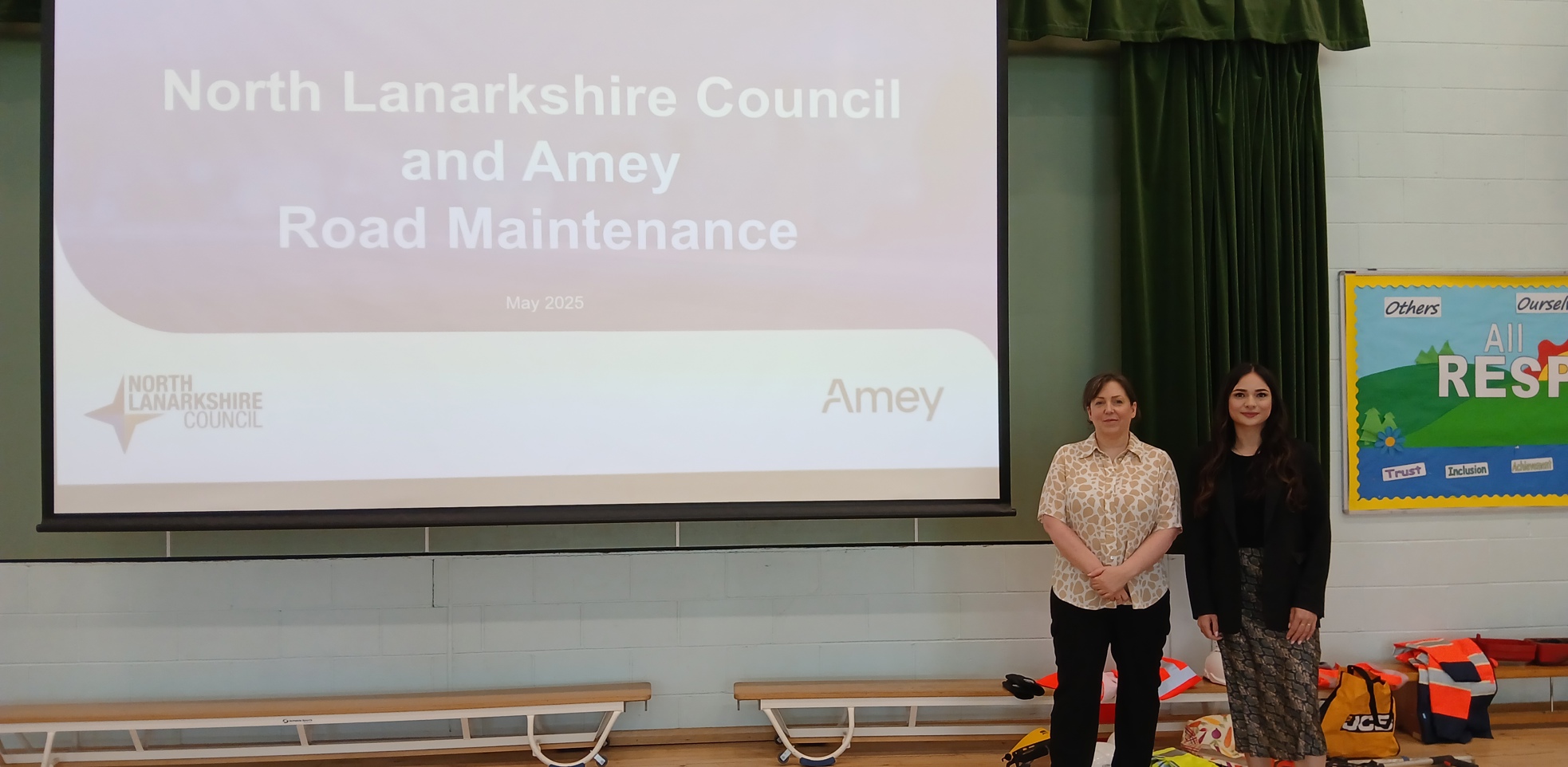Tagged in:
Inspiring Future Innovators at St John Paul ii Primary School
On Friday, 2nd May 2025, Lauren SeBlonka, Business Innovation Manager at Amey, and Elaine Nicol, Road Maintenance Manager at North Lanarkshire Council, visited St John Paul ii Primary School to host an engaging STEM workshop for Primary 5 students.

Their session focused on the environmental impact of carbon emissions and introduced practical solutions to reduce them—aligning with the mission to create more sustainable infrastructure.
The workshop kicked off with an interactive presentation, where Lauren and Elaine explained their roles in the sector, explored the causes of carbon emissions, and encouraged students to think critically about ways to combat these challenges.
Working in small groups, students identified carbon-emitting elements in areas of road maintenance, such as street lighting, surfacing, and pothole repairs, before brainstorming innovative solutions to address them.
To wrap up the session, students got hands-on experience by trying on personal protective equipment (PPE) and using dumpy level to assess the leveling of their school hall—giving them a glimpse into industry techniques used in sustainable road construction.
This interactive workshop provided an exciting opportunity for young learners to engage with real-world challenges and explore how STEM can play a crucial role in decarbonising roads for a cleaner future.
Other Articles
View all Articles View Article
View Article
Q4 Reflection - Quarterly Newsletter 2025
Read about our last quarter of 2025, with updates from recent trials, events and local authority best practice.
 View Article
View Article
Toolkit for Innovators Entering the Roads Industry
This document reflects on the Barriers to Decarbonising Roads Sandbox at a specific point in time, sharing recommendations that reflect on real experiences of stakeholders in the industry.
 View Article
View Article
Impact of Local Road Maintenance on Carbon Emissions
This article provides a high-level technical overview of the carbon emission sources associated with local highways maintenance activities across the UK network.

Comments